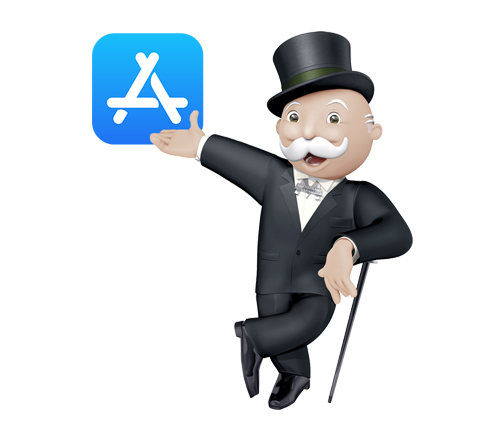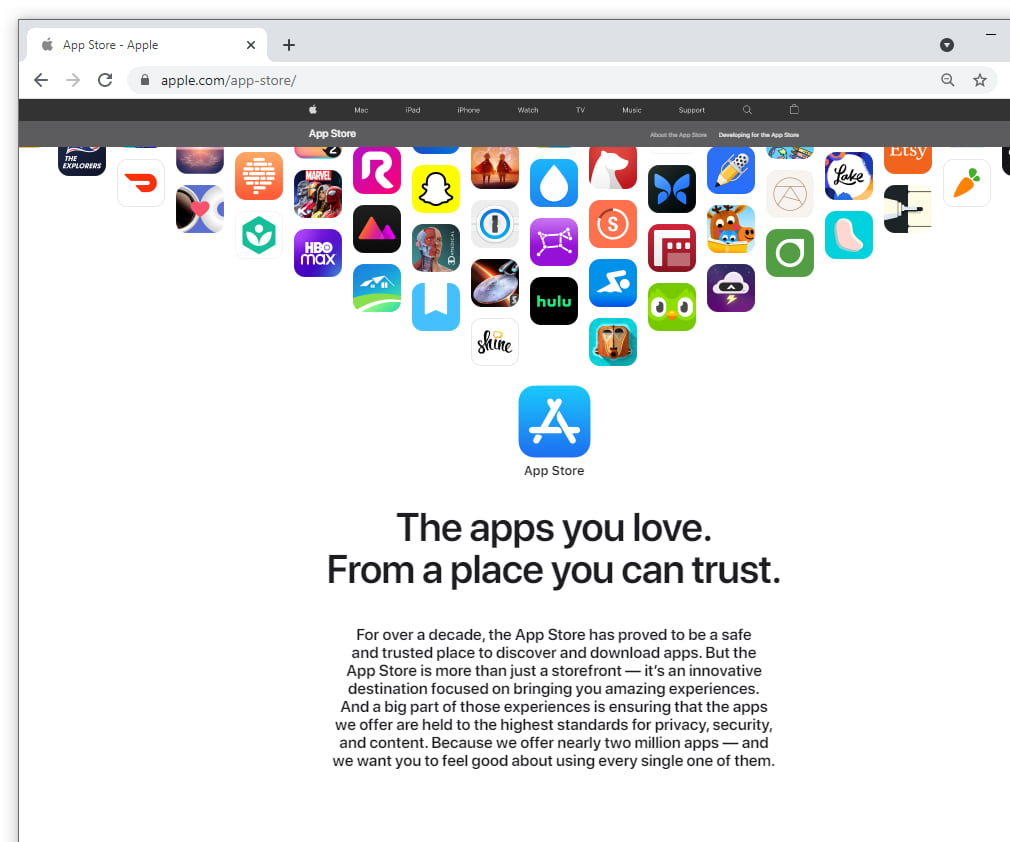Apple controls various platforms that work together in an ecosystem, that is govern and controlled by Apple and no other.
From the way Apple provides its products and sells its services, to the way it wants people to take care of their devices and repair them, down to how consumers are required to downloads apps to their devices, many considers Apple's approach in business a monopoly.
This is because Apple is positioning itself as an enterprise that is the only supplier and the provider of the entire Apple commodities.
Apple is the creator of the Macs, iPhones and others. And regulators in a number of countries have been considering the App Store as a monopoly.
Many considered Apple to be using its power to control the visibility of apps, and the prices of apps by making them priced higher than they normally should have cost. Then there is the Apple Tax, where Apple is taking a cut from many of in-app payments.
Apple has too much control, and regulators aren't liking it.

It should be noted that Google is also doing very similar things with its Google Play Store.
It controls and governs the Android app store, in ways that Apple controls and governs its App Store.
However, the big difference is that Apple devices, like the iPhones and iPads, are not allowed to install apps from third-party stores.
What this means, users of iOS and iPadOS who want to install a certain app on their device must do so from the App Store, and pay whatever the price is. Google on the other hand, allows users to sideload apps which means that Android users can install software from third-party Android app stores.
That way, users have the option to see and compare things, including the ability to get better prices.
Users of Android can also install apps directly from their installer .apk files.
These differences prevent the Google Play Store from being called anti-competitive like the App Store.
Apple rejected this.
What makes Apple unique, is its ability to maintain an ecosystem, and share the same experience across its many products and services.
Apple, the Cupertino-company founded in 1976 by Steve Jobs and Steve Wozniak, did this right from the start, back from the days it tried to differ itself from the competition. Through Jobs' innovative and consumer-focused approach and Wozniak's engineering expertise, the two turned Apple Inc. into an instant success.
Before competing head-to-head against Google in the mobile industry, Apple was already a fierce competitor or Microsoft, and Apple's stance was never that different.
In a letter, Apple explained that it is not monopolistic, simply because iOS and iPadOS users have other alternatives when browsing for an app, such as using a website.

Among the things that Apple said to defend itself:
"Apple is not in a position to disregard the environment in which its app marketplace operates and does not accept the Commission's characterization of the Apple App Store as 'the most dominant app marketplace by a large margin'."
"Indeed, Apple competes vigorously to attract the best developers because a reduction in the quality of apps, or restricted availability of popular apps in the App Store, would diminish the user experience. Any action undermining the popularity of the App Store — including impeding developers from being successful on the App Store — would be economically irrational, as this would destroy the value of the ecosystem to the detriment of consumers, app developers and Apple itself."
"Web browsers are used not only as a distribution portal, but also as platforms themselves, hosting 'progressive web applications' (PWAs) that eliminate the need to download a developer’s app through the App Store (or other means) at all. PWAs are increasingly available for and through mobile-based browsers and devices, including on iOS. PWAs are apps that are built using common web technology like HTML 5, but have the look, feel and functionality of a native app. They can even have an app icon that resides on the device home screen. Web apps are becoming increasingly popular."
"Developers may provide iOS users access to digital media content within the iOS app that the user purchased from the developer outside the app, on a website."
"Thus, even within the iOS ecosystem, developers can and do utilise substitutes for distribution through the App Store. Their utilisation of such alternatives put them squarely within the relevant distribution market. "
What Apple is trying to say is that, within its iOS and iPadOS ecosystems, users can obtain access to third-party apps via developer websites and other sources that will allow these apps to be installed and used on the iOS platform.
Apple says that this is important "because of the competitive importance of providing developers with flexibility in competition with other operating platforms."